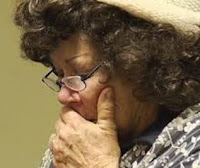The
Letter’s Column in today’s The Times puts Helen Zille’s controversial tweet
about colonialism being not all bad into the right perspective.
It mirrored exactly what happens on social media and in the
press in South Africa
If you are Black your freedom of speech, which can be just
as controversial, if not more so than Zille’s tweet, can be a lot more free
than if you are White saying much the same thing. And racialism as well as
other kinds of prejudice is also far more serious if you are White than if you
are Black.
Under the heading Zille:Racist
or truth teller? there were five letters on the subject. The first three
broadly speaking supporting Zille’s view appeared to be from Whites with the
last two from Blacks joining the hysteria about her remarks.
The most telling one from Louis highlighted what the wild
dogs of the media conveniently ignored when jumping on the #ZilleMustGo
bandwagon.
He pointed out that in the Saturday Star of February 4 Kabelo Chabala, who is clearly Black,
wrote: “The truth is South Africa
So there are some Blacks who can see exactly what Zille was
talking about through the prejudice.
“The
reaction? Not an indignant squeak,” was Louis’ comment. He added, “In the new South Africa
Significantly Chabala’s very balanced view appeared in Saturday Star more than a month before
Zille’s tweet on 16 March. And when our impartial media that is always looking
for the truth, was doing its utmost to cash in on the social network frenzy
that Zille caused, did anyone hunt him down for a more extensive interview. If
they did I can’t find it anywhere.
Social media appears to have been ominously quiet when the
long running case against Jon Qwelane, the veteran journalist notorious for his
homophobic views, came up again. The
Times tucked the story away under the innocuous heading ‘Hate speech laws not consistent’ on
one side of Page 6. A day later
Zille’s crime was splashed across the front page headlined: Zille’s tweet too far.
Compare his case with that of Penny Sparrow, an elderly,
sickly former estate agent. She got into trouble early in 2016 for her tweet
complaining about hordes of “monkeys” being allowed to mess up Durban
Within
months she was fined R150 000 by an Equity Court Magistrates Court
Qwelane made his own headlines in 2008 when he
outraged the gay community with a column in the Sunday Sun entitled Call me
names but gay is NOT okay.
He has yet to be found guilty
and sentenced, 8 years after the column appeared.
In it he
lauded Zimbabwe
He
lambasted the constitution and wrote that he prayed the politicians would have
“the balls” to rewrite it “to excise those sections which give license to men
marrying other men, and ditto women.
“Otherwise
at this rate,” he went on, “how soon before some idiot demands to ‘marry’ an
animal and that this constitution ‘allows’ it. And by the way tell the Human
Rights Commission that I totally refuse to withdraw or apologise for my views,
because wrong is wrong.”
Our own President Jacob Zuma appears to have agreed with
Qwelane because in 2010, while at least one court case against him was pending,
he appointed the scribe as the South African Ambassador to Uganda Uganda
In
2011 a South African Equity Court
The
South African Human Rights Commission received a record 350 complaints about
Qwelane’s column. That’s how bad it was yet the Equity Court
The newspaper, which is in the Media 24 stable, printed an apology but why it was never charged for carrying such obviously contentious muck, only the state will know. Qwelane on the other hand won’t say sorry. He believes what the paper did was enough.
The newspaper, which is in the Media 24 stable, printed an apology but why it was never charged for carrying such obviously contentious muck, only the state will know. Qwelane on the other hand won’t say sorry. He believes what the paper did was enough.
That was not the end
of the story. The Equity Court Uganda
The
Human Rights Commission then took up the case in which he has been challenging
his conviction in the Johannesburg High Court on the basis that the parts of
the Equity Act, under which he was found guilty, infringed his right to free
speech.
Various hearings have been held, sometimes without him as
he claimed he was ill and it still hasn’t ended. It just goes on and on.
It’s a very far cry from the almost instant “justice” meted out to the little old White lady who didn’t have an editor or sub-editor to vet her thoughtless tweet before she let it loose on the world.
There are only one or two African countries that have never
been colonised. So perhaps somebody should see if their infrastructure and
other facilities are up to the standard of the ones that have. But I don’t
think the colonialism-was-all-bad school would want that. It might just blow
their case.
If
colonialism and apartheid had nothing to commend them what will the plusses be
for South Africa by grabbing prosperous farms without compensation and an
affirmative action policy that rewards people essentially on colour rather than
ability?
Regards
Jon, who believes that if all South African’s media showed the
same social media maturity as Panyaza Lesufi ( most mature social media user ) we would
all be a lot better off. He’s BLACK by the way.
P.S. Helen Zille is the 66 year old Premier of the Western Cape










